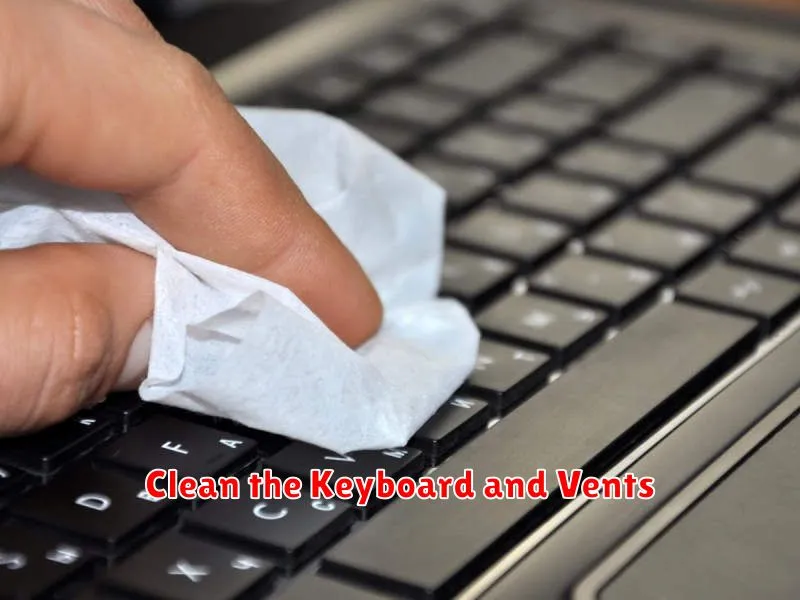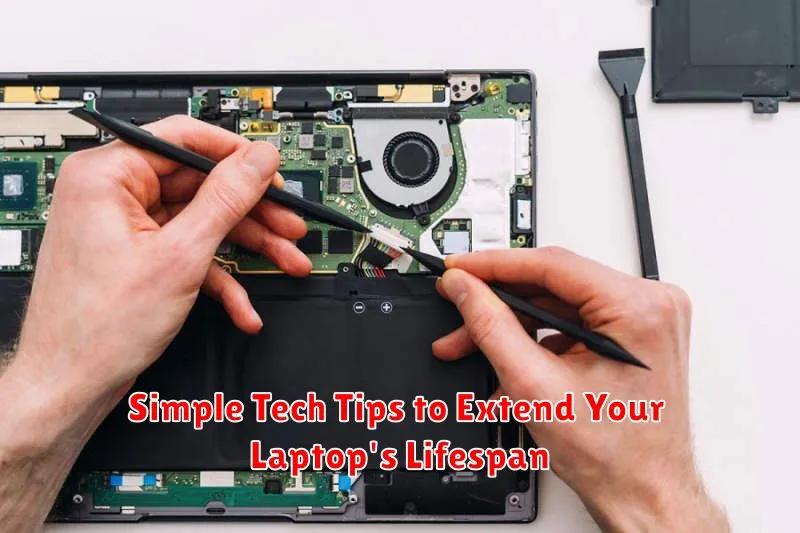Is your laptop slowing down, overheating, or showing signs of wear and tear? Don’t rush to replace it just yet! Extending the lifespan of your laptop is not only cost-effective but also environmentally responsible. With a few simple tech tips, you can optimize its performance and keep it running smoothly for years to come. This article provides practical advice and easy-to-implement strategies to help you maximize the longevity of your valuable laptop.
From simple maintenance tasks to optimizing software and managing battery health, we’ll cover essential practices that can significantly extend the life of your laptop. Learn how to safeguard your investment and avoid costly repairs or premature replacements. These tech tips are accessible to users of all levels, regardless of technical expertise. Start implementing these simple changes today and enjoy a more efficient and durable laptop experience.
Keep It Cool: Avoid Overheating
Overheating is a major contributor to premature laptop failure. Excessive heat can damage internal components, leading to decreased performance and ultimately, a shorter lifespan.
Ensure proper ventilation. Never block the vents on your laptop. Using it on soft surfaces like beds or blankets can obstruct airflow. Invest in a laptop cooling pad or stand to improve ventilation, especially during intensive tasks.
Regularly clean your laptop’s vents. Dust buildup insulates the system, trapping heat. Use compressed air to carefully clear the vents and prevent overheating.
Monitor your laptop’s temperature. If it feels excessively hot, cease demanding tasks and allow it to cool down. Consider adjusting power settings to reduce performance and heat generation if overheating is a recurring issue.
Clean the Keyboard and Vents

A clean keyboard and clear vents are crucial for laptop longevity. Dust and debris trapped in the keyboard can impede its function, while blocked vents lead to overheating, which can damage internal components.
Use compressed air to blow out dust from between the keys and around the vent openings. A soft-bristled brush can also help dislodge stubborn particles. Regular cleaning, such as once a month, can prevent buildup and keep your laptop running smoothly.
Don’t Overcharge the Battery
Modern laptops use lithium-ion batteries, which don’t suffer from the “memory effect” of older battery technologies. This means you don’t have to fully discharge them regularly. However, constantly keeping a laptop plugged in at 100% charge can still degrade the battery over time. Avoid leaving your laptop plugged in overnight every night.
Ideally, maintain the battery charge between 20% and 80% for optimal lifespan. While some laptops have built-in battery optimization features to manage this, it’s still a good practice to be mindful of charging habits.
Heat is another enemy of battery health. Avoid placing your laptop on soft surfaces like beds or blankets that can obstruct airflow and lead to overheating. Use a laptop cooling pad if necessary, especially during intensive tasks.
Avoid Full Storage Capacity
Maintaining ample free space on your laptop’s storage drive is crucial for its long-term health. Running a system near full capacity can significantly impact performance. Strive to keep at least 15-20% of your storage free. This allows the operating system sufficient room for temporary files, virtual memory, and other essential processes.
When your storage is nearly full, everyday tasks can become sluggish. You may experience slower boot times, application launches, and file transfers. Furthermore, a full drive can lead to increased wear and tear on the drive itself, potentially shortening its lifespan.
Run Regular Software Updates
Keeping your software updated is crucial for extending your laptop’s lifespan. Updates often include performance improvements, bug fixes, and, most importantly, security patches that protect against malware and other threats.
Failing to update your software leaves your system vulnerable. Outdated software can become a gateway for viruses and other malicious programs, potentially leading to data loss, system instability, and a shortened lifespan for your laptop. Regularly updating ensures your system runs smoothly and securely.
Set your laptop to automatically download and install updates whenever possible. This ensures you benefit from the latest improvements and protections without having to remember to check manually.
Use a Surge Protector
Power surges can severely damage your laptop’s internal components, leading to premature failure. A surge protector acts as a buffer between your laptop’s power supply and the electrical outlet, absorbing excess voltage and protecting your device from harm. This simple precaution can significantly extend your laptop’s lifespan.
Don’t just plug your laptop directly into the wall. Always use a surge protector, especially during electrical storms or if you live in an area with unstable power. This inexpensive investment can save you from costly repairs or even replacement down the line.
Close Unused Background Apps
Background applications consume system resources like RAM and processing power, even when you’re not actively using them. This can lead to slower performance and decreased battery life. Regularly closing unused applications is a simple yet effective way to improve your laptop’s efficiency and extend its lifespan.
To close unused apps in Windows, open the Task Manager (Ctrl+Shift+Esc), navigate to the Processes tab, and select the applications you wish to close. Click “End task” to close them. On a Mac, use Activity Monitor (found in Applications/Utilities) and follow a similar process.

